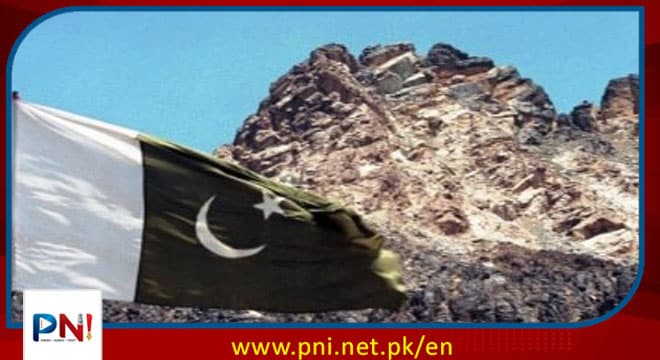QUETTA, May 27 (APP): Balochistan Think Tank Network (BTTN) organized a webinar on “25 Years of Pakistan Nuclear Tests: Strategic Objectives and Peaceful Uses of Nuclear Technology” here Saturday to commemorate the 25th anniversary of Pakistan’s successful Nuclear Tests.
According to the press release, the webinar was moderated by Associate Director Research Miss Hananah Zarrar.
While discussing the “Backdrop of Pakistan’s Nuclear Tests and its Strategic Objectives”, Dr. Nasir Hafeez, Director Research SVI, explained the idea of Nuclear Diplomacy and Nuclear Discourse and stated that both ideas are inter-linked.
He said that nuclear diplomacy was the art of conducting nuclear strategy. While referring to the nuclear debate between India and Pakistan, Dr Hafeez elaborated that whenever this debate remained conceptual in nature, the very existence of these weapons was effectively preventing the war in South Asia. India claims to be a responsible nuclear state. But, it was India that introduced nuclear weapons in South Asia even though India was involved in drafting the Non-Proliferation Treaty (NPT), whereas Pakistan’s stance remained that of supporting the establishment of a nuclear-free South Asia until 1998, he expressed.
Dr. Ansar Parvez, Former Chairman PAEC and Advisor (Nuclear Power) National Command Authority, apprised the session about both peaceful and military uses of Nuclear Technology and highlighted the different realms where peaceful Nuclear Technology is doing wonders for the betterment of humanity, including providing clean energy, increasing crop health and productivity, and mitigating deadly diseases and illnesses with its medical applications.
He emphasized on how nuclear technology was one effectively working towards achieving the sustainable development goals (SDGs).
Elaborating on Emerging Technologies and Integration with Nuclear Weapons, Air Cdre Khalid Banuri (R), Former DG ACDA told that new and emerging technologies were carrying opportunities for better efficiency, but also posed challenges that were enormous and unavoidable.
He further added that on the strategic level, we used to hear of whoever controlled the heartland or the rimland would rule the world. But today, whoever masters the Artificial Intelligence will rule the world.
He highlighted the increasing demand for the states to explore and get command on the emerging technologies especially AI to better stand in the contemporary competing global order.
Asadullah Raisani referred to his recently conducted research findings that include the existence of abject poverty in the vicinity of the area where the tests were conducted. Chagai, Dalbandin area lacks resources and quality of living.
This in turn has caused the people of the locality to blame their miseries on the Nuclear Tests conducted in 1998, which include deteriorating health conditions and facilities in the region. Some of the genuine health concerns such as rising cases of cancerous tumors, skin diseases and respiratory problems could be linked to the tests but diseases such as HIV, hepatitis, and appendicitis which the locals suffer from, are not at all related with radiation-borne diseases. The blaming culture found in the locals has its roots in economic and social frustration, he elaborated.
At the end of the webinar, Head of BTTN Brig Agha Ahmad Gul (R) said that despite American diplomatic pressures, Pakistan’s position to undertake nuclear tests in two weeks of the Indian tests, should make the nation proud of its capabilities.
He said that after the US attacked Japan with two different nuclear weapons, to test the two types of nuclear bombs, two red lines emerged slowly for nuclear-capable states. One, never to attack a nuclear state, as military response will be catastrophic and second, never to wage a war with another nuclear power, as none could win it and both states would end up with mutually assured destruction, he noted.
He added that India nonchalantly crossed the First Red Line on 26 Feb 2019. Pakistan responded with Quid Pro Quo Plus the next day, shooting down Two Indian Fighters, capturing one pilot but then returning him the next day.
Rather than admitting its loss, India falsely claimed to have shot down Pakistani F-16, which no one believed. Thus, it is natural to think when India will cross the 2nd Red Line with its irrational leadership, he expressed.
He concluded the session with extending his gratitude to the speakers and the moderator.
Follow the PNI Facebook page for the latest news and updates.









